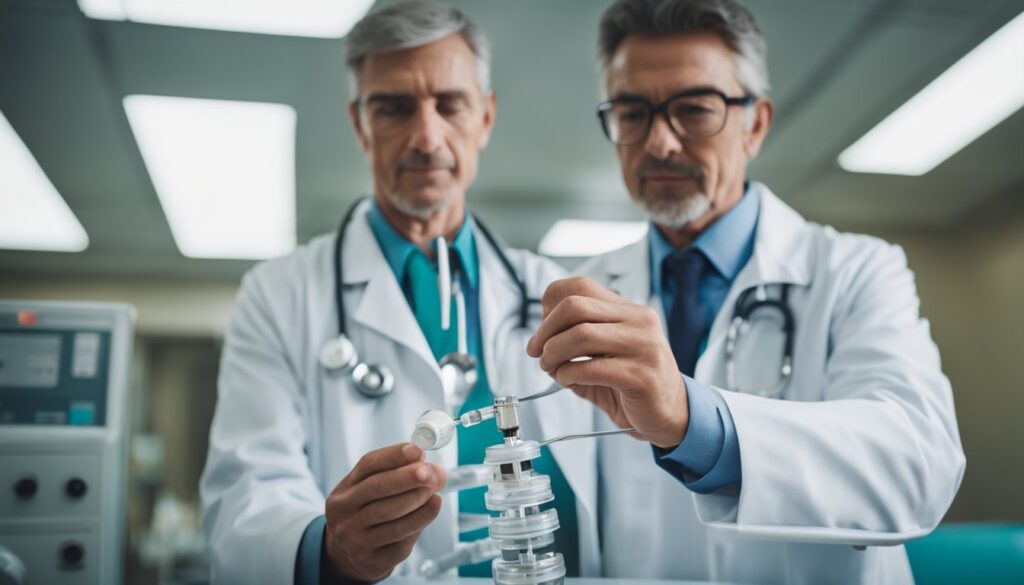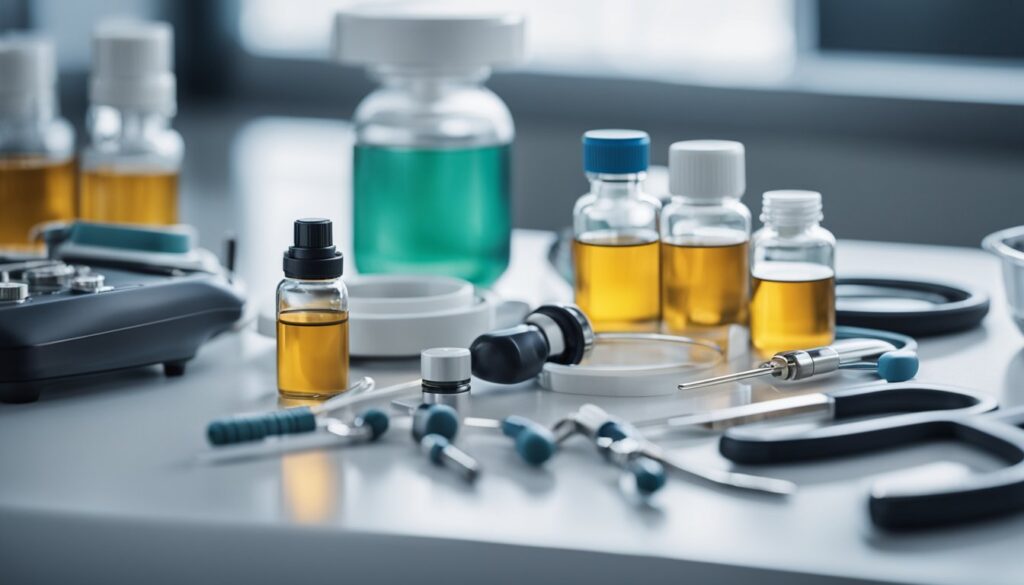Testosterone plays a critical role in a variety of bodily functions beyond its well-known effects on muscle growth and sexual health. Your understanding of this hormone can expand as you explore its therapeutic applications, including the treatment of conditions such as hypogonadism, where testosterone levels are abnormally low, leading to issues with sexual development, reproductive function, and general health. Additionally, testosterone has implications for those suffering from protein-energy malnutrition (PEM), a condition characterized by dietary deficiencies that can result in significant weight loss and muscle wasting.

In more acute medical scenarios like severe burns and infections such as HIV, testosterone therapy has been found to aid in recovery by promoting tissue repair and countering muscle degradation. Bone health is another domain where testosterone contributes, particularly concerning osteoporosis, a condition of weakened bones that increases the risk of fractures. Hormone replacement therapy (HRT), which sometimes includes testosterone, can be prescribed to address bone density loss and improve your overall skeletal strength.
Notably, the employment of testosterone therapy must be approached with caution and under medical supervision due to potential side effects and the intricate balance of hormones in your body. Whether considering testosterone for health conditions or hormone replacement therapy, it is vital to weigh the benefits against potential risks and to engage regularly with healthcare professionals for monitoring and guidance.
Testosterone Therapy in Medical Conditions

Testosterone therapy plays a crucial role in managing a variety of medical conditions, potentially improving symptoms and quality of life. It’s important to understand its specific applications and the benefits it may provide for different health concerns.
Hypogonadism and Hormone Replacement
In cases of hypogonadism, your body doesn’t produce enough testosterone, leading to symptoms such as reduced libido, sexual dysfunction, and fatigue. Testosterone replacement can alleviate these symptoms by restoring normal testosterone levels. Careful monitoring is essential to avoid side effects.
Impact on Osteoporosis and Fracture Risk
Testosterone contributes to bone density and strength. If you have osteopenia or osteoporosis, testosterone therapy may be part of the treatment to increase bone mineral density, especially in the spine and hip, reducing the risk of fractures. This therapy should complement other treatments, including adequate calcium and vitamin D intake.
Applications in HIV and Wasting Syndromes
For men with HIV, especially those with virologically suppressed HIV, weight loss and wasting can be serious issues. Testosterone therapy may improve body composition, energy, and weight gain, reducing morbidity and mortality risks. It may also help in managing chronic inflammation associated with HIV infection.
Healing Support in Burns and Recovery
In severe burn victims, testosterone therapy can serve as a treatment to support recovery. It may promote weight gain, tissue repair, and cognitive function by countering the muscle and weight loss that often occur after significant burns, thereby assisting in the overall healing process.
Testosterone and Hormone Replacement Therapy in Gender Health

Testosterone plays a pivotal role in hormone replacement therapy (HRT), particularly in the context of gender health. It is crucial in managing conditions associated with menopause and in addressing prostate health concerns in men.
Managing Menopause and Related Conditions
During menopause, your body undergoes significant hormonal changes that can lead to symptoms like hot flashes, a decline in libido, episodes of depression, and the risk of developing osteoporosis due to bone loss. HRT utilizes hormones like testosterone to alleviate these symptoms. Testosterone supplementation can help reduce hot flashes and support bone density, mitigating the risk of osteoporosis. Additionally, balancing hormone levels can improve your mood and sexual function.
- Hot Flashes: Testosterone may minimize the frequency and intensity.
- Libido: An increase in free testosterone can boost your sexual drive.
- Bone Health: Adequate levels of testosterone are linked to healthier bone density.
- Mood: Testosterone can have positive effects on mood and help combat depression.
HRT and Prostate Health in Men
HRT, including testosterone replacement, has implications for prostate health. Testosterone levels need to be carefully monitored due to concerns about prostate cancer. While there is no definitive evidence that testosterone therapy directly causes prostate cancer, it is known that testosterone can stimulate the growth of prostate cells.
- Prostate Monitoring: Regular check-ups are vital while undergoing testosterone HRT.
- Hormonal Balancing: Ensuring appropriate levels of sex hormone-binding globulin (SHBG) and free testosterone is crucial.
If you’re considering HRT, it’s important to discuss with your healthcare provider the potential benefits and risks, including the impact on prostate health and the potential increased risk of stroke. Blood tests measuring testosterone levels and PSA (prostate-specific antigen) can help tailor HRT to your needs.
Frequently Asked Questions

Testosterone therapy has specific benefits across various medical conditions. In this section, you’ll find targeted answers to common questions regarding the uses of testosterone in clinical scenarios ranging from hypogonadism to hormone replacement therapy (HRT) for menopause.
How does testosterone therapy benefit those with hypogonadism?
In cases of hypogonadism, your body produces insufficient levels of testosterone. Testosterone therapy can help restore hormone levels, which may improve sexual function, increase muscle mass, and enhance mood and energy levels.
In what ways is testosterone treatment used to support patients with anemia due to chronic kidney disease?
Testosterone plays a role in erythropoiesis, the production of red blood cells. When you have anemia associated with chronic kidney disease, testosterone treatment can help stimulate red blood cell production, potentially reducing the need for erythropoietin-stimulating agents.
What role does testosterone play in the treatment of extensive burn injuries?
For extensive burn injuries, testosterone therapy can be vital as it may enhance protein synthesis and muscle regeneration. This helps in the healing process and may improve recovery outcomes by reducing catabolism, which is the breakdown of muscle tissue.
Can testosterone therapy improve health outcomes in HIV-positive individuals?
In individuals with HIV, testosterone therapy can help address unintentional weight loss and muscle wasting. By promoting increased muscle mass and overall strength, testosterone may contribute to improved quality of life for HIV-positive individuals.
How is testosterone used to prevent or treat osteoporosis in men?
Testosterone is essential for bone density and strength. When you use it to treat osteoporosis, it helps increase bone formation and decreases bone resorption, which can result in a lower risk of fractures.
What are the considerations for using testosterone in hormone replacement therapy for menopause?
Although not commonly associated with women, testosterone is part of the hormone replacement therapy equation during menopause for some. It can assist in managing symptoms such as low sex drive and fatigue. However, considering the potential for side effects is crucial, and therapy should be closely monitored by a healthcare provider.